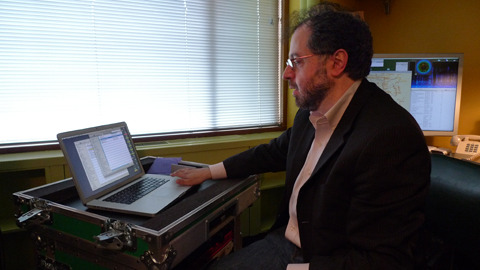Zajal: A Lost Lebanese Art Form?
Zajal, the poetic duel between two individuals has been part of my life for as long as I can remember. Afternoons were spent with tapes being played over and over again by my grandfather, my father, my uncles, and everyone in the town. My childhood memories, places I have visited and discovered, and people I have met each have a specific zajal duel to go along with it. Something about the fierce battle of words amazed me, not only because it was so beautiful, but because the poets would think of replies and answers which flowed freely and struck the opponent right on the spot. Nothing was prepared, but instead it was “spontaneous”. It was an art form that really was one of a kind.
Zajal is said to come from the ancient “Andalusia”. Today it is certainly… Lebanese. This doesn’t mean that other areas don’t “participate” in Zajal, as I have heard Zajal coming from Syria, Palestine, and even Morrocco. The rules of Zajal are easy. First a topic is placed for the poets, for example “night vs day”, and the poets will battle it out with things that either make day better than night or vice versa. One who stumps the other is declared the “winner” or the better poet. The point is to convince with poetry, with slightly bashing the other poet, but NOT disrespecting him/her. It is a matter of proving your point, and convincing the people who watch. The tambourine, a Dirbakeh, and a chorus (also known as the Reddadi – or repeaters) who will repeat the poetic phrase are also present. By far, the Lebanese Zajal is the most popular, because of the “Zajaliyeh” who are present in Lebanon. Some of them, and for sure you have heard some of them, include (but not limited to) Zein Sh’eib, Talih Hamdan, Zaghloul al Damour, Moussa Zgheib, Asaad Said, and Khalil Rukoz. The art of Zajal is ancient to Lebanon, being very popular in the Bekaa Valley, South Lebanon, and the Chouf.
My grandpa used to talk to me about the days when he had the only TV in the neighborhood. Everyone would get together and watch Zajal, arguing about who is the best, and which poetic verse was the most beautiful. Zajal in Lebanon was apparently made popular by Bishop Gabriel Al-Qla3i Al-Hafadi (1440-1516). Lebanese Zajal is chivalrously flirtatious, full of pride and “shawfet 7al (conceitedness), but at the same time respectful and tasteful. Topics of interest in Lebanese Zajal have been history, religion, politics, women, and patriotic loyalty to Lebanon. It is part of the Lebanese culture, and considered to be a much valued art form. However, in recent years it has been on the decline. I find it does not have the status it used to have in previous years. I can understand this totally, because younger generations are interested in newer things, different types of poetry, music, and entertainment. But for individuals like myself, who were raised with Zajal, it hurts to see it dieing down. In 2007, I was in the Bekaa Valley. I heard of a Zajal performance taking place in a town 5 minutes away from Zahle called Bar Elias. I had to go. I was excited to watch something that has been in my life from the beginning… something my grandfather passed down to my father, who ultimately, and not meaning to by the way, passed it down to me. It was a part of me. I wanted to see this “concert”, but quickly realized nobody would go with me. They called it “old-fashioned” and “boring”. Eventually, my friend from the Metn called me and told me he would love to go with me… and he did. The concert took place on the banks of the Ghzayyil River in the Bekaa, under the shade of the trees, with Lebanese Mezze and Arak from Zahle included as well. It was my highlight of the summer. It was beautiful. This summer, I was driving through the great Mountains of the Chouf with some friends on our way to visit a friend. I was driving, and by rules we have set for driving, the person who drives chooses whats on in the CD player. I was driving, and I chose Zajal. It felt amazing to listen to something so Lebanese, in the heart of the Lebanese mountains. What a feeling. Everyone in the car, except for one, was nagging, and threatening to jump out of the car in a suicide attempt, so I took it out. Again, I had to hear that Zajal was boring, old fashioned, and for the old Lebanese men who grew up with it. I tried to argue and explain how beautiful this form of poetry was, and the amount of talent the poets must have in order to come up with poems like that on the spot. Nobody cared, and I couldn’t help but feel that this art, this beautiful poetic art was unappreciated…and even worse… “dead”. Today, I am still a large fan, I cannot help but be in love with Zajal – something I have grown with, and grown to love. But I worry that one day it will be gone for good. Is Zajal dieing? Are other parts of our history and past dieing as well? I hope not. Cheers to Zajal, no matter how old fashioned it is!
From Seifandbeirut.com





